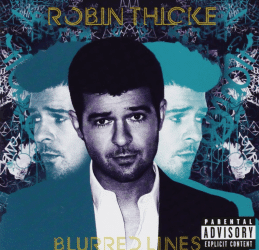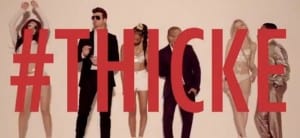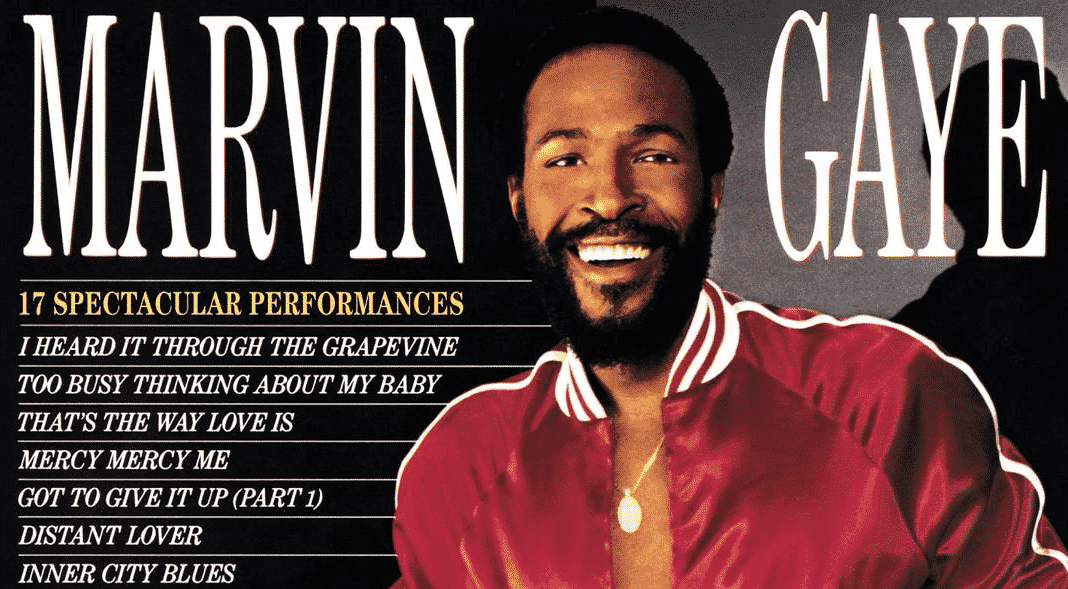Composing Music After Blurred Lines
Living in blurred times because of Blurred Lines...

Recently, the New York Times and Vulture wrote seemingly back-to-back articles about how composers, in particular pop song composers, are dealing with the changes from the Blurred Lines verdict.
Both articles looked at how appropriation and remix culture have changed over the decade and how, in 2019, many composers fear a lawsuit and are actively changing the way they write songs to ensure that they are original enough to survive any legal challenges.
This is coupled with stories from attorneys that claim they are getting more calls and more work following the lawsuit, both from people wanting to claim they were infringed and wanting to guard themselves against such claims.
There seems to be little doubt that the Blurred Lines verdict has changed the culture of the music industry. But what did the lawsuit and the verdict actually change?
The answer, when you break it down, is not much. But the fact it happened at all has sent shockwaves through an already skittish industry, which has given dramatic importance to a singular court case.
A Brief History

Pharrell Williams and Robin Thicke released the hit song Blurred Lines in March 2013. Paired with the popular music video, the song became considered the “Song of the Summer” for the year.
But, while the song was at the height of its popularity a storm was brewing. The estate of Marvin Gaye had complained that the Blurred Lines was too close to Marvin Gaye’s 1977 song Got to Give it Up and that prompted Thicke and Williams to proactively sue the estate in hopes of getting a declaratory judgment in their favor.
Most gave the Gaye estate very little chance of success, especially since the judge greatly restricted the evidence that they could present. However, the lawsuit survived a motion for summary judgment and headed to a trial. In March 2015, a jury ruled in favor of the Gaye estate and awarded them $7.3 million.
Later that year in July, that amount was reduced by the judge to $5.4 million and the case was headed for an appeal. In March 2018, the 9th U.S. Circuit Court of Appeals upheld the verdict and the amount. Though the Appeals Court did free the rapper T.I., who performed as a guest in the song, and Interscope from liability, the jury verdict was to stand.
In July 2018 the Appeals Court declined to rehear the case and, in December 2018, the final verdict was entered bringing the case to a close.
With the case in the books, we get a chance to look at the impact it is having. The answer, however, appears to have much more to do with the culture of the music industry than the law.
Measuring the Legal Impact
From a legal standpoint, the Blurred Lines case was never going to have a great impact. For those interested in the law, there were many ongoing cases of much greater importance.
The reason for this is that the case hinged on matters specific to it, not an issue with the law. The case was decided on the merits of the evidence presented, not an interpretation of the law itself.
To that end, there was a great deal specific to this case that tipped the scales toward the Gaye estate. For one, Robin Thicke was a terrible witness who admitted to heavy drug use during the creation of the song and gave contradictory testimony. For another, the Gaye estate had a great attorney who was able to outmaneuver his opposition during the trial.
To those outside the courtroom, the verdict was a huge surprise. I am among the many that got it wrong.
However, those inside the courtroom had a very different impression. They could tell that the jury was not finding Thicke credible and that the momentum was on the side of the Gaye estate.
The truth is that it’s very possible to have the exact same trial again but, with a few variables changed, get a different outcome. As I said in my tweet, juries are unpredictable and cases like these leave enough room for multiple outcomes.
What the case did have was major news coverage, a surprising verdict and an eye-popping jury award. Even people who don’t follow copyright or the music industry were aware of the trial and the verdict. It made headlines around the world in mainstream media publications.
That made the case feel extremely important, even if it didn’t represent a watershed moment legally. However, sometimes feelings can be a self-fulfilling prophecy and that may be exactly what the case has become.
A Changed Landscape
What did change with verdict and appeal was the perception that such lawsuits could never succeed. Few gave the Gaye estate any real chance of winning and, when they did, it shattered perceptions about what could happen in a court of law.
The vast, vast majority of legal disputes never get anywhere near a courtroom. They are often settled long before a lawsuit is even filed and, even if a lawsuit is filed, they are often settled well before a trial.
This is doubly true in the music industry. Disputes over songwriter credit and/or song theft are as old as the industry. However, such cases rarely make it before judges with parties usually preferring to settle things quietly and confidentially. Often times, the only clue something has happened is in the songwriter credits.
However, this case did make it to court and did make it to trial. Though it took several stars to align, the Gaye estate won and, for those who thought it was impossible, it felt like a major ground shift.
The truth is that such a verdict was always possible. Trials and juries are inherently unpredictable and that’s why lawyers, in general, try to avoid them. However, when it made the headlines, the threat suddenly became much, much more real.
That perception has its own impact. From the New York Times article, lawyer Christine Lepera said that, while there’s been no increase in the number of such cases reaching the courts, the concern over the ruling is having its own “chilling effect.”
Would-be plaintiffs are feeling emboldened while would-be defendants are less inclined to fight back. This has led to a rise in disputes over song authorship and headlines about them.
And, until we get another headline-grabbing ruling going the other way, this is likely how it’s going to be. It’s not because the legal landscape shifted, but how the momentum is perceived to have shifted.
However, such headline-making cases are very rare and we’re not likely to see another any time soon. After all, even the Stairway to Heaven case has not seen the same media attention as the Blurred Lines one.
It’s likely the industry will live in the shadow of the Blurred Lines case for a long time to come.
Bottom Line
In the end, the biggest impact of the Blurred Lines case isn’t any major legal shift, but rather, a shift in perception.
The truth is, the Blurred Lines verdict could have happened at almost any point in history. Trials and juries have always been unpredictable and nothing was really changed by the verdict as it dealt solely with the facts of that specific case.
But while it may not have changed the law, it let the industry and the world know that plaintiffs can win such cases. That is sometimes all it takes to cause a dramatic shift in behavior and thinking.
To that end, the importance of the case is still grossly overstated but it’s difficult to ignore the psychological impact of such big headlines.
For better or worse, this case will cast a shadow over songwriting. Composers will have to be more careful as would-be plaintiffs feel emboldened and there is less will to fight them.
Though not necessarily a representation of a legal reality, it’s a representation of a practical one. That, in the end, is what’s most important.
It doesn’t matter if the Blurred Lines case is important, what matters is that enough people believe it is.
Want to Reuse or Republish this Content?
If you want to feature this article in your site, classroom or elsewhere, just let us know! We usually grant permission within 24 hours.
